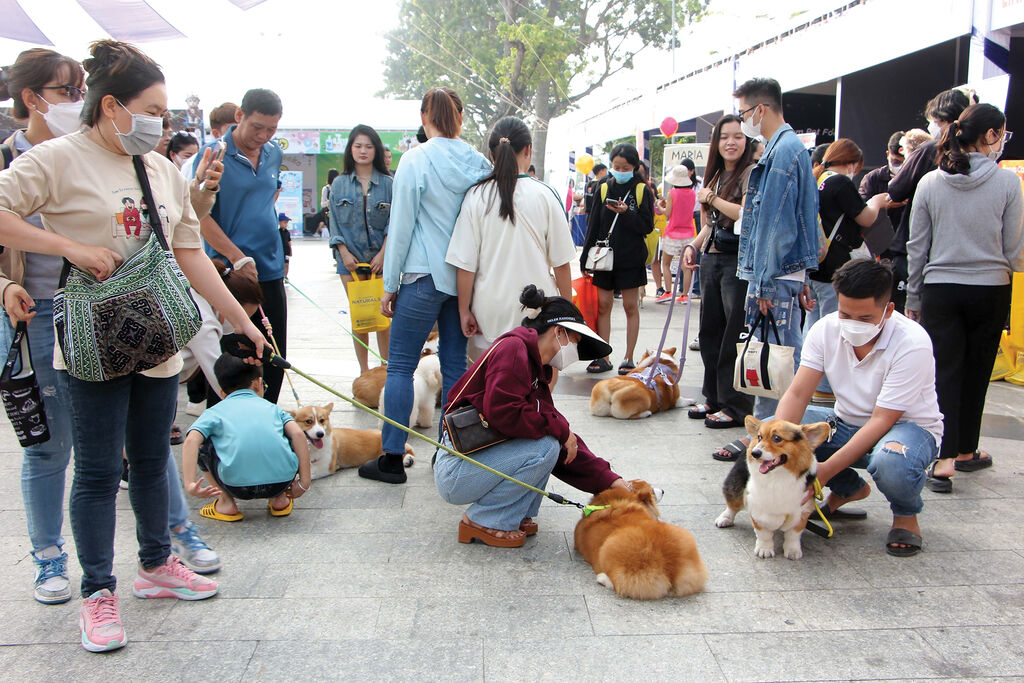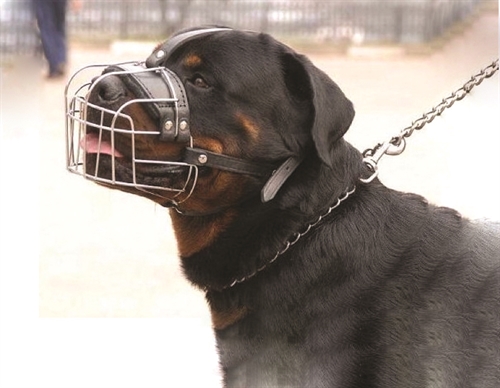 |
| Pet lovers gather at the Mekong Delta Pet Festival in Can Tho city on January 6, 2024 Photo: Trung Kien/VNA |
In early April, a video appeared on social media showing 19 dogs and many belongings of a woman being forcibly removed from a leased apartment in Ho Chi Minh City following her conflict with the apartment owner over her pets.
It was later reported by local media that the woman, N.P., aged 35, had moved into an apartment in River Panorama complex with her 19 dogs since January 2024. She admitted with the Tuoi Tre that the lessor, after receiving plenty of complaints about noise and stench caused by the dogs, had asked her to relocate them and finally decided to unilaterally terminate the lease and remove the dogs and her belongings from the apartment.
The case was finally settled. After spending a night at the building hall, the dogs were brought to a pet center for temporary care and later reunited with N.P. at their new home.
Raising pets has become a growing trend among urban residents. According to statistics revealed in an article published on VnExpress International, Ho Chi Minh City currently has 106,000 families raising 184,000 dogs and cats, with 65 percent of them being raised in downtown districts. In 12 inner-city districts of the capital city of Hanoi, there are more than 50,000 dogs and cats being raised as pets.
However, given the fact that a majority of urban dwellers in Vietnam are now living in apartment buildings or densely populated quarters, pets are a potential source of conflict among neighborhood if not properly managed.
N.B., aged 55, a resident in a small alley in Ho Chi Minh City’s District 8, has been tensed for months with his neighbor - an old single lady living with seven cats. The tiny space separating their homes is the only place for fresh air. However, since the cat lady moved in, the wind blows no longer fresh air but cat fur and odor straight into N.B.’s house. Late at night, cats run across the roofs and defecate on his front yards. One day, the man was washing dishes in the kitchen and couldn’t stand the smell of cats. He called out to the neighbor to pick up the feces. The cat lady came out to clean up the mess while yelling about how N.B. was “looking for trouble.” “She did help with cleaning up the cat’s mess, but it happened so many times that she became upset,” the man told VnExpress International.
The above two examples just mention cases where cats and dogs are raised as pets. The situation is much worse for those who live near households that keep a large number of animals in their homes.
Over 50 families in Ho Chi Minh City’s District 4 have time and again lodged complaints about noise and odor pollution caused by a family in their neighborhood that has kept nearly 100 dogs for many years but not yet received the response they expect from authorities.
As reported by local media, in March 2023, the family was fined VND64 million (USD2,500) for environmental pollution. However, authorities later rescinded the decision due to insufficient legal bases. Needless to say how these people are upset and frustrated when having to live next to a house of 26sq.m overcrowded with nearly 100 dogs. According to authorities, the issue cannot be dealt with due to lack of the regulations on pet raising. Currently, there are no legal provisions requiring people to inform their pet raising to local administrations as well as limiting the number of pets a family can keep.
For the time being, only dog owners are governed by several legal documents, including the 2018 Law on Livestock Production, the 2015 Law on Animal Health, Government Decree 90/2017/ND-CP on sanctioning of administrative violations in the field of animal health (revised under Decree 04/2020/ND-CP), and Ministry of Agriculture and Rural Development Circular 07 of 2016 on prevention and control of terrestrial animal diseases.
Specifically, under Article 66 of the 2018 Law on Livestock Production, dog owners are required to get their pets vaccinated against rabies and take measures to ensure safety for humans and other livestock, keep environmental sanitation and comply with veterinary hygiene requirements. Dog raisers will also be liable to compensate for damage in case their pets attack humans or other animals. Meanwhile, according to Circular 07, those who raise dogs must leash, confine or keep their dogs on their premises. When out in public, dogs must wear a muzzle or be leashed and led by their owners. Those who violate these regulations will be subject to a fine of between VND 1 million and VND 2 million as specified in Decree 04/2020/ND-CP.
Authorities’ move aiming at tighter management of pet raising
Pending the issuance of a legal document governing pet raising in residential quarters all over the country, the Department of Agricultural and Rural Department of Ho Chi Minh City is now seeking approval from the municipal People’s Committee to formulate temporary regulations on management of dog and cat raising in the city. Once adopted, such regulations will regulate the raising of dogs and cats as pets or for commercial purposes, provision of dog and cat sitting and boarding services, establishment and operation of dog and cat rescue centers, etc.
Pet raisers in the city would be required to register and declare their pet ownership with commune-level People’s Committees twice a year and meet several requirements regarding environmental hygiene and noise and disease control. Particularly, those who raise 50 or more individual animals, i.e., large-scale pet raising, must also satisfy conditions on animal health and professional staffs so as to ensure pets are properly monitored and cared for.
The regulations also clearly spell out rules related to noise generated by pets. Particularly, dog barking and growling sound must not exceed 70dBA, equivalent to the sound of a washing machine or a dishwasher, during daytime, or 55dBA, equivalent to a household refrigerator, at night. In case the pet owners cannot control their pets, they would be penalized and their pets relocated.
In addition, those who keep fierce dogs such as pit bulls and hounds would have to hang dangerous dog warning signs in front of their houses.
Along with that, when walking pets in public places, owners would have to clean up their pets’ feces. Those who fail to comply with regulations would be handled based on CCTV footage data.- (VLLF)









